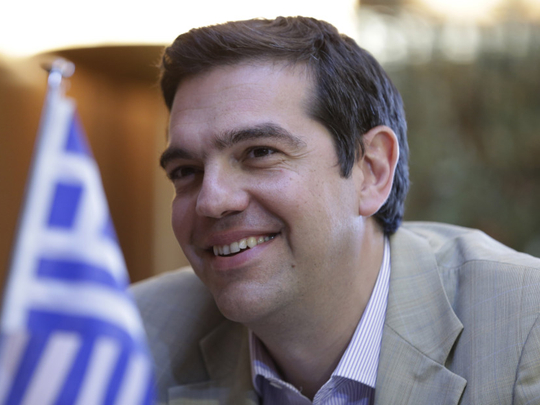
In 2010, the year of their nation’s first €110 billion (Dh441 billion) international rescue, plenty of Greeks understood that the state and citizenry had lived for decades beyond their means. The medicine of austerity and economic reform would be bitter, but it had to be swallowed. The paramount need, as for earlier generations of Greeks, was to stay on the path of modernisation and a European identity.
As I am discovering in Athens, the mood today is different. Exhaustion and despair have replaced self-criticism. There is much resentment that five years of medicine seem to have brought little except mass unemployment, failing businesses, a withered welfare state and national humiliation.
Yet, the desire for a modern Greece, claiming its rightful place in Europe, is much the same now as in 2010. This explains the apparent paradox that Greeks voted in a July 5 referendum against bailout conditions intended to keep the country in the Eurozone, yet state in opinion surveys that they want to stay in Europe’s currency union. Even 66 per cent of Syriza voters are pro-euro.
It also explains an apparent paradox about Alexis Tsipras, the radical leftist prime minister and Syriza leader. He successfully urged Greece’s parliament last week to approve tax and pension reforms required to secure a new €86 billion bailout — the third since 2010. At the same time, he fumed that he was “blackmailed” into accepting the terms and did not believe in them. His ambiguous stance arouses misgivings in Eurozone capitals about whether his government — even after a reshuffle that removed rebel ministers — can be trusted to implement the bailout terms. Why, they ask, does Greece always seem to want to have its cake and eat it?
I would make two observations. One concerns the love-hate relationship between Greece and the west, a complex set of attitudes that date to the 1821-1832 war of Greek independence. The other concerns how Athens and its creditors have handled, or rather mishandled, the emergency. Both points bear on whether the third bailout, as presently designed, will work.
For Greeks, the west is a community of advanced economies and democracies towards which they have travelled for two centuries, gaining full membership when they entered the European Economic Community, the EU’s forerunner, in 1981 and the Eurozone in 2001. Modern Greece owes its independence partly to British support, and to the US it owes the enormous good fortune that it was the only Balkan state not to succumb to communism after 1945.
But Greeks also see the west as composed of more powerful nations that sometimes bully their country, using political, economic and even military pressure. No list of western interventions in Greece is complete without the creditors’ commission set up in 1898 to control the nation’s finances after a state bankruptcy five years earlier.
Then there was the 1941-44 Nazi occupation, followed by a long spell of postwar US influence that included support for the military junta that ruled Greece from 1967 to 1974. All these traumas were supposed to fade with Greece in the European Union (EU) and Eurozone, clubs that purport to embrace a spirit of unity and equal treatment. Instead, the economic slump has reinforced the dualism of Greek feelings towards the west. The creditors are at once liberators and jailers. They possess the power to lift Greece out of its hell. They can also make it stew there indefinitely. In signing up for western-dictated reforms, but flinching at their implications, Tsipras is following a path trodden since 2010 by governments of left and right — though his invective is more ferocious.
To understand why Greeks and their leaders are halfhearted about the creditors’ demands, we must look beyond national stereotypes. We must appreciate how 200 years of Greek involvement with the West has left patterns of much-prized progress and painful setbacks, faith rewarded and faith betrayed.
Clearly, present-day factors matter a great deal, too. A root-and-branch overhaul of Greece’s public administration, including tax collection, is an essential element of the bailouts. The creditors are justifiably frustrated that no government, certainly not that of Tsipras, has destroyed the nexus between political parties and public sector patronage constructed in the 1980s by Andreas Papandreou, the late socialist premier. Yet, the 2010 bailout was flawed. Far from laying the groundwork for growth, it sank Greece into a depression so severe that any government would have struggled, in deteriorating social conditions, to stick to a reform project beyond anything in the nation’s experience.
For sure, Greece needs labour market reforms, more open product markets and a modern state that does not kowtow to vested interests. But its economy also cries out for liquidity, bank credit for businesses and investment that will generate jobs, promote growth and alleviate the social crisis.
Belatedly, debt relief (in the form of extended maturities and more generous repayment schedules rather than outright write-offs) is on the horizon. But the danger is that a bruised Greek society no longer has the stamina for reform. Measures that produce growth and show light at the tunnel’s end are essential. Otherwise, the third bailout will fail, and Greece’s relations with the West will again be tainted by recriminations and mutual misunderstanding.
— Financial Times











